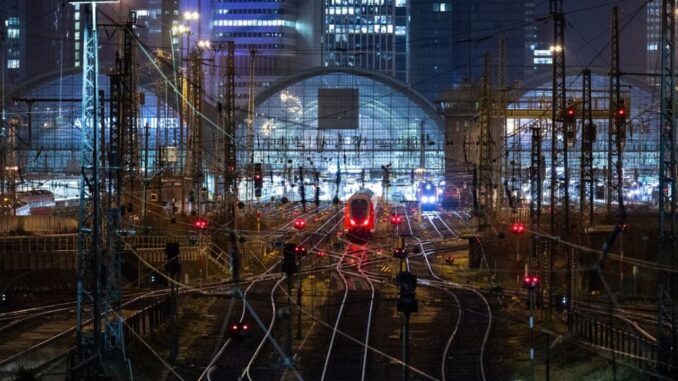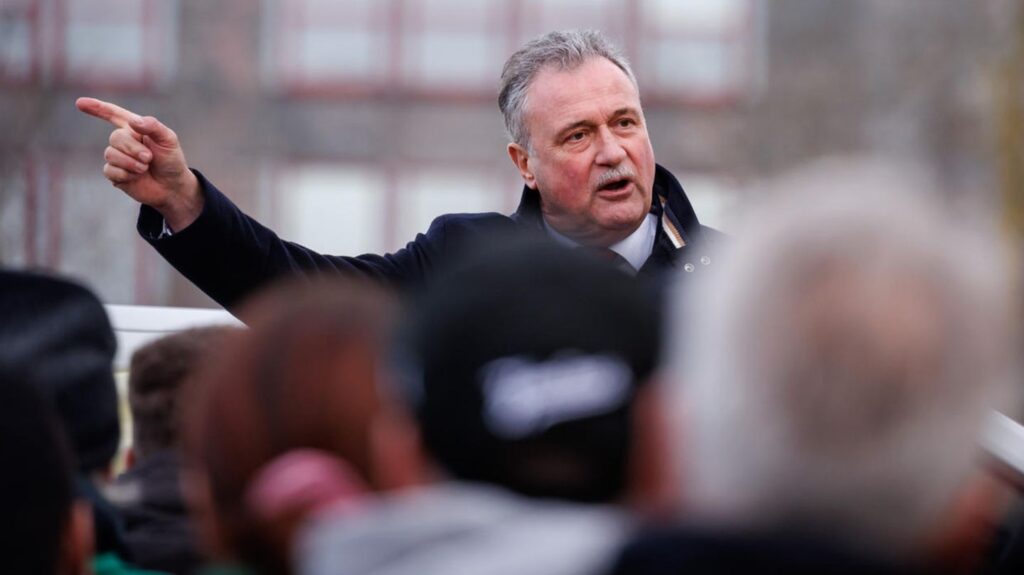
The German Machinists’ Union has begun a strike of almost a week in the midst of a labor dispute with the company Deutsche Bahn over higher wages and shorter working hours. This is the fourth strike as a force measure since November 2023, and the longest one in the history of the country’s railways.
By Carolina Menéndez Trucco
The GDL machinists’ union is once again on strike. In the dispute over wages and shorter working hours with Europe’s largest railway company, it seems that both sides simply cannot reach an agreement. The result: increasingly longer strikes. The conflict with the state railway company Deutsche Bahn (DB) that began on Wednesday the 24th at two in the morning for passenger transport and had started on Tuesday the 23rd at six in the afternoon for freight transport will end before as planned because negotiations will resume. These will last five weeks and during that time, that is, until March 3, in principle no strike is expected but nothing guarantees that if the negotiations become tense the strikes will return. The GDL will then end the strike in freight transport on Sunday afternoon at 6:00 p.m. and the strike in passenger transport on Monday at 2 in the morning. Deutsche Bahn warned that “the GDL strike will cause massive disruptions in all long-distance and regional traffic up to and including Monday”, and confirmed that “it is the longest in DB history”. Annoying for train passengers, or for large corporations and millionaire businessmen? Liberal Transport Minister Volker Wissing called the strike “destructive” to Germany’s GDP. Along the same lines, DB spokesperson Anja Bröker considers it “a blow against the German economy” and an impact on supply chains. But so far, the union has been able to count on the understanding of rail passengers and the support of train drivers. But what didn’t want was for the negotiations to be delayed. “If nothing comes by Friday, we’ll take a break and go into the next industrial dispute”, the president of the GDL, Claus Weselsky, had anticipated during an interview with German public broadcaster ARD and ZDF after the start of the penultimate strike, describing the railway’s final offer as a provocation

¿Qué pide GDL?
What does GDL ask for?
Hard strike instead of soft negotiations. The German Machinists’ Union (GDL, according to its acronym in German), even though it is a minority within a company with about 211,000, , demands salary increases to compensate for inflation and move to a 35-hour week for four days compared to the current 38-hour week, although some doubt that paid vacations are included or give in some other type of concessions. Deutsche Bahn’s last offer had been 37 hours a week for the same salary or an additional 2.7% pay increase for those who maintain the same number of hours. The union leader, on the other hand, also referred to the collective agreements with other railway companies that are willing to make concessions in this regard and to progressively introduce reduced working hours. Deutsche Bahn had only been willing to talk to the union about extending existing working time models, so negotiations had gone cold again. Transport Minister Wissing, for his part, tried to campaign in favor of state arbitration, but his lobby failed in the negotiations. “You have to find a way in which both sides can get along. For this we have to talk among ourselves”, said the FDP leader. However, a resounding victory, with the active support of the other railway unions and the trade union centres, would strengthen the entire German working class.
From collective bargaining to social struggle
For the GDL strikers the question is how to guarantee that the power of struggle can be used to achieve all the demands: 35 hours a week, with an increase of 555 euros per month, 3,000 euros as a one-off payment for a period of 12 months to offset the effects of inflation. This implies going back to strike if there is no better employer offer after negotiations. The consultation and democratic decision of the bases, the consistent mobilization for demands, solidarity and coordination with other sectors in struggle, will help to develop a combative union wing. Unfortunately, the Railway and Transport Union (EVG) – the main trade union center in the sector – once again shows a lack of solidarity towards the striking GDL employees. Therefore, for GDL members, but actually for all railway workers and also in other sectors, the question arises about what should happen after the strike, and even after the joint negotiations. The wage dispute, in the midst of continuing inflation, must serve to unify the entire German working class in its fight against the bosses and the capitalist government.








